Betty Who on her queer identity: “I don’t even know what I am”
The dynamic pop star returns to D.C. for a third consecutive performance at the All Things Go Fall Classic

“I feel very loved by D.C.,” says Betty Who. “I feel very at home here.”
The Australian native, who moved to the United States at the age of 15, has what she calls an “indescribable” connection to Washington, D.C. The pop star’s history and rapport with the city goes back almost a decade now, and it also happens to be tied up with one of the city’s leading music presenters, All Things Go.
“The first time we heard of Betty Who was back when we were running our music blog and we posted a few of her original songs,” says Stephen Vallimarescu, co-founder of the music promotion and production company, which helped present one of Who’s first shows in D.C. “That was in the old Living Social space [downtown], where we hosted a few events. It was like a 100, 200-capacity venue.
“Betty is one of those artists, every time we’ve seen her, she’s put on a phenomenal performance,” he continues. “Seeing her grow and incorporate the dancers [and] additional elements in her set — confetti and some arena-level production elements — has made it more exciting to come back and see her and see how things are evolving. And having the live band is really cool and rare for a pop artist too.”
Who will return for her third consecutive performance at the All Things Go Fall Classic, now in its sixth year, held over Columbus Day Weekend. (For more on the festival, see page 30.)
“It’s pretty unique and special to have an artist be a part of a festival for multiple years in a row,” says Vallimarescu. “For us, Betty has become a staple of the festival and I think that represents her impact in D.C. as a whole. She recently did a run of three consecutive sold-out shows at 9:30 Club, which I don’t think I’ve seen many other artists do, either.”
Who is excited to return to D.C. to help usher in fall with All Things Go — which just so happens to fall one week after her 28th birthday.
“Honestly, my favorite festival probably in the world is All Things Go, because I’ve never had a bad show there,” Who says. “They always make me feel like a rock star. Most festivals, I walk on stage and I spend the first 30 minutes convincing everybody that I’m worth their time and worth their attention. And that’s cool, that’s what it’s for, that’s what I’ve been cutting my teeth on for the last seven years, that’s what makes me love performing, is winning people over.
“But All Things Go is one of the only places in the world where I get to walk on stage and I know that most people in the audience know why I’m there, and we’re ready to have a good time from the first song. And that’s such a gift, it’s such a pleasure.”

METRO WEEKLY: Let’s go a little bit deeper into your connection to D.C. in general. How you would describe it?
BETTY WHO: It’s sort of indescribable, in a way. I’m very shocked all the time to be honest. I’m pretty blown away by the support I have in the city. I’ve never really experienced anything like it. The closest thing I’ve experienced to it is in New York, where people really, really show up for me.
I do feel that my fans have given me something that I didn’t know was possible. Nobody’s ever told anybody, “You should listen to Betty Who,” and then they put me on the radio. “Oh I know this song, and now I listen to her.” That’s never been the way that my career has worked. I’ve shown up at venues, and I’ve had mostly gay men show up, and then we have a good time and the next time they bring their friends. It’s just grown like that since then. I find it phenomenal, I’ve never really seen anything like it.
I’ve never walked away from a show in D.C. and been like, “I’m worth more than that,” or, “Oh that sucked, I wish people had been more respectful.” I’ve never felt that way about D.C., I’ve never had that experience, which is really rare and I feel so grateful to have a place in the world where I know I can always have a good show.
MW: I had seen a couple of dynamic performances from you prior to your first All Things Go in 2017, but that was a ramped-up production that took you to another level.
WHO: All Things Go might’ve been my first or second big show with choreography. It’s crazy to think about how far we’ve all come. But yes, it’s very possible that one of the first times I ever had a big festival and I did choreo was at All Things Go.
I’m such a fan of pop stars. I have such a love and adoration and care for the people that have come before me and have inspired me to be in this business in the first place. There’s a list of things that those people do as performers that I have always looked up to and wanted to do my own version of. And I think adding choreo to the show was high on that list. It just took me a while to find the right person to do it with.
When I first started doing choreo on stage, I can’t imagine comparatively to how I am now, how sort of bad and half-off it was. I loved dancing when I was young, and every dance teacher I ever had told me that I was already too tall and too big to ever be a professional dancer, so there was no point in me even trying. And when you’re 13, you listen to that. You go, “Oh, I thought that I was good at this, but I guess I’m not.” So I stopped taking classes, I stopped taking lessons, I stopped pursuing dance in any way, because I was told I would never be successful. And now, basically what I am trying to do is just make 10-year-old me really psyched.
MW: So 10-year-old girls today who are your height — 6’2″ — and are likely being told the same thing in dance class, what would you say to them or to their teacher?
WHO: Their teacher, I would tell them that they are doing it wrong. I understand the teacher saying, “Listen, you’ve got to manage your expectations. To be a ballerina you have to be 5’6″ and weigh 80 pounds, and you’re already 6 feet tall at 13, so let’s talk about it.” I get that there’s a realism aspect of it. But also, kids manifest, kids create things for themselves. There’s no raw energy like that of a passionate child. And I know that for a fact because I was one of them and I manifested this career for myself. This was literally teenage me going, “I want this.”
If I had waited until I was 25 to listen to that instinct and to follow my path and follow my heart, I don’t think it would’ve worked out the same. There are things that we can do when we’re young people that we don’t have access to anymore once we hit a certain age. I love doing this and I think I’m really good at it, and for so long I actually maybe wasn’t good at it and I just thought I was. And that was enough — “fake it until you make it” is real. Literally, I thought I was good and now I look back and I’m like, “Oh my God, how embarrassing for me.” But how lucky I am that I didn’t have the tentative mind to know that I was bad, because then I wouldn’t have done it. You have to believe in yourself, you have to be your number one fan, you have to think that you’re the best. Because if you don’t think you’re the best, why are you in this business? Why is anybody going to buy what you’re selling? I’ve always thought that nobody can do what I do, even when I’m certain many, many people could probably do what I was doing.
The magic of how much has to align for any one person in the business to have any minuscule moment of success — it is so unbelievable that it ever happens for anybody. And I try to stay really, really present to my gratitude for that, because I have lots of friends who want to do exactly the same thing that I am and they don’t have the same resources and the same ability. I’m just so grateful.

MW: You were encouraged to pursue all of this by your parents. Did they actually move to America for you?
WHO: They did. I got into a performing arts high school when I was 15 — Interlochen in Michigan — and I had attended two summer camps there. And at the end of the second summer, the cello teacher basically said, “Let’s not be coy here, you have lots of work to do, but I think you’d be a really great addition.” I basically got in on my fucking spunk and personality. And I think he knew that I had a musical gift, I think he just knew I wasn’t going to be the best cellist in the world, but he was a teacher who saw something special in me.
And so it was between him encouraging me to follow my passion for music and my parents — my mom was the first one who was like, “You’re going.” I was 15 and I had two weeks to go back to Sydney, pack up my entire life that I had known and just change it all and go to this school. I was like, “I don’t think I’m ready for that, I don’t even know if I want it.” And my mom was just like, “Absolutely — we’re going.” In her own sacrifice, she did the same thing. She had two weeks to go pack up her life and she threw so much of what she knew away, to come support me.
Going to Interlochen and being around a bunch of creative young people, that’s where my love and my passion for not only music and performing, but for people came from. I met these kids who were between 14 and 17, and they’re all practicing five hours a day and have these big dreams and know what they want to do. There was so much manifesting going on at that time. To be surrounded by those people, all of a sudden that’s what really set me on this path and really helped me go, “Okay, I see what my potential is, I can do anything.” Not a lot of teenagers have that “I can do anything” feeling. And Interlochen and my parents gave me that.

MW: How do your parents feel about your career now?
WHO: Oh my God, are you kidding? My dad is my absolute number one fan. I always thought that my mom would be the really emotional one, and my dad would be quite stoic, with the pat-on-the-back, “You’re doing good kid,” and my mom would be crying. It’s quite literally the opposite. My dad is a sobbing blubbering mess, he goes to the front row and the barricade in front of everybody and he’ll be crying and singing all the words. It’s such a pure and honest and beautiful reaction. And my mom is much more at the back of the audience, “That was awesome, good job, kid.”
It’s quite mushy but I mean it: My mom is the reason that I am the way that I am. I think her emotional intelligence and her grace is something that I am so inspired by. And my dad, everytime I get on the phone with him, he spends ten minutes telling me how proud he is of me and how he can’t believe what I’ve accomplished and how special he thinks I am.
I am so lucky, my parents are incredibly special people and I think that’s the only reason that I’ve had not only the confidence, the ability to support all of that, but it’s like you have to know as a human that you’re good enough for something like this. And I think that has informed so much of my art — that’s what I write music about. There’s no apology in my performance or in my presence. I’m happy to be here.
MW: On that topic, you convey a lot of resolve and determination in your lyrics, yet there’s also a lot of heartache and heartbreak. Are you writing from experience?
WHO: I’d say most things I write are 98-percent autobiographical with artistic license. I do write a lot of things about experiences that I’ve had — whether it’s through other people or about how I imagine I made somebody else feel. So if I hurt somebody, I’ll often write a song from their perspective — “that sucks that you did that.” That’s the therapy in writing for me, a lot of that. Where I’m kind of working through not only how other people made me feel, but how I make people feel.
MW: You’ve recently come out as a “queer woman,” and I was hoping you’d be willing to elaborate on that.
WHO: Listen, I’m a little afraid to come out as anything, because I don’t even know what I am. I know that I’m not just interested in men, I know that I love people unconditionally. It’s not really about physical attraction for me. It never has been. But when I was in high school, “bisexual” couldn’t have been a dirtier word. And I went to a performing arts high school where basically everybody was something. “Bi now, gay later,” is what everybody said.
I want to lead by example, and I’m not going to lie and tell everyone I’m straight, because I’m not. But it’s all been really interesting. I’m engaged to a man — I think it makes people uncomfortable sometimes to listen to me talk about that experience because I have kind of found my life partner, and he happens to be a man. But our lives are very queer together, the people we spend time with, but also both of our sexual preferences. I don’t want to speak for him, but I think there’s so much more space in sexuality now.
Queer is the word I like the most, but I’m a little afraid of it if I’m being totally honest. I’m a little afraid of people deciding that I’m not queer enough — that’s happened before, I’ve heard people say that. People get mad at me for dating a man. I do know that I have a lot of fans who look up to me, and I want to be really careful about the way that I speak about it, because I never want to undermine anybody else’s experience. But what’s true for me is true for me — and I’m certainly not straight. I’ve had a very queer life. I’ve found a person that I love, he happens to be a man, and that’s true for now.

MW: Would you call him your soulmate?
WHO: Yeah, many, many times over. Oh my God, he’s the best. And he understands me in a way that nobody else ever has, and I think that’s all you can hope to find in a partner, regardless of their sexual orientation. We get so caught up in boxes and making sure that we all know exactly how to identify and understand someone. As an artist, people say, “Okay, it’s like Robyn meets Katy Perry with a little bit of Pink.” Everybody has to define you in a way that they can understand and wrap their heads around you. And I get that, and it doesn’t bother me, I just know that it’s true. I don’t really know what my definer, what my word is yet, if that makes sense. And I don’t know if there is a word, because every time I think I know a word that defines me, there’s a huge global conversation about why some people can’t be that. Isn’t that the whole point of the LGBTQ community — to not be defined by anything, and get to be exactly who you are? But we’re pretty caught up on those words right now and I feel uncomfortable putting myself in any of them because of that.
MW: You certainly put your money where your mouth is. A dollar from every ticket you sold on this year’s tour was donated to the Trevor Project, for example.
WHO: Fuck, yeah. That’s something that I really love to support. If I actually had money…. I know that people think once you get to a certain point, you must be rich — it certainly doesn’t work like that, for me at least. As an independent artist, I don’t have a lot to give, but what I can give is my time and my community, and that’s exactly what we did on this last tour, which I was so proud of and so excited about. I can’t imagine anybody not wanting to donate, but it’s like, “If you’re going to come see me, this is something that’s important to me, you’re going to give a dollar of your money to this organization as well.” I really loved that.
Trevor Project and Planned Parenthood are sort of my favorite two organizations to do stuff for. I love GLAAD as well and I’ve worked pretty closely with GLAAD. I remember when I was really young and I was starting to do the steady gigs and stuff and my mom asked, “Okay, so what’s your cause?” And I was like, “What do you mean?” She said, “If you’re going to do this and you’re going to have a voice, you’re going to use it for good instead of evil and you’re going to have to pick what your thing is. Is it women, is it children, is it hunger, is it water? What’s your thing?”
I thought about it a lot and I didn’t really have an answer to it, I just knew that was a really smart way to look at it. And then I played my first show in New York City and 80 gay men showed up and I was like, “Oh here it is, here’s my life work. It’s to be a part of this community and to be someone who makes people feel seen.” It’s not even necessarily that I’m trying to be a warrior for social justice — I mean, I am in my own life personally. I think the thing that has been most important to me is for people to feel like they have somewhere to go, for people to feel like they know that someone cares about them and loves them, that they have self-worth.
I’m a very, very confident person. I have a lot of self-worth and a lot of self-love, and I’ve got enough to spare. And that’s really what I’m trying to put into my music, trying to do with my life and my career — just create a community where people show up and they go, “I feel good now.” I want to bring joy and light into the world. There’s so much darkness, there’s so much pain. Every single day someone comes to meet and greet and they have their hearts full of pain and they hand it to me and they go, “Oh my God, can you help me carry this because it’s too much?” And I’m like, “Yes, I can. We all can. We can all help each other out, we can all be there for each other.”
I have good energy, I have bright energy, I have light energy. And I think that’s special, and I’m really protective of it. But I give it out in spades to my fans, which is my community, because that’s what I think I was put on this planet to do.

MW: How do you stay positive, especially in this dark and depressing era we find ourselves in currently?
WHO: My favorite quote, my favorite thing that ever happened in the 2016 election — before it was over and we all got our asses handed to us — is Obama going, “Don’t boo. Vote.” That was my favorite quote. I think about it all the time. I want a T-shirt with it on it. Stop complaining, do something about it.
There’s a lot of hurt and a lot of hate, and it’s really hard to find and keep and hold compassion for the people that we don’t agree with. But I think Martin Luther King, Jr. is a perfect example of somebody who was like, hating them back is not going to do anything. I have a lot of friends, a lot of people in my community, who I hear talk about the way conservatives are, and they’re really hateful — you’re doubling down on the problem. “Kill them with kindness” has always worked for me, and I think it’s going to keep working. We don’t know how to listen to each other, we don’t know how to talk to each other anymore. We’re just so angry at each other, and then we yell at each other and we think each other is stupid for not thinking what we think. It’s so inhuman. We want to be heard, we want to be listened to. And holding compassion and space for the people who don’t agree with you I think is the first step to being able to be somewhere in the middle.
MW: Do you have dual citizenship?
WHO: I do, yeah. I’m American and Australian, so I get to vote, which I’m very very happy about. I don’t know what I would do honestly if I didn’t have citizenship in America. I’d probably have been deported already, to be honest. It’s a big generalization, but I have a lot of friends who have had to go back to their home country since Trump has been elected. I’m so grateful for the fact that I’m lucky enough to have dual citizenship. I know what a blessing that is, and it’s the reason I’ve been able to stay in the country with minimal stress. The hoops that my friends and my community have had to jump through to stay in this country — people who have lived here their whole life. It’s made difficult on purpose, and it breaks my heart.
MW: Do you go back to Australia often?
WHO: Not often enough. I work all the time. When I do take time off, it’s often to go be with my parents who are living in America currently. But I have plans to go back to Australia next year.
MW: Are you big Down Under?
WHO: It’s funny, I’ve had the most commercial success in Australia, because I had a song go #1 on radio. So I got a plaque, that was really exciting. But if I’ve learned anything, a radio hit doesn’t really translate to tickets sold. My success is far greater in America with no radio than it is in Australia with radio. It really is.
I play bigger venues, I sell more tickets, than a lot of people who have Top 10 songs on the radio. I’ve been pretty shocked, actually, at how much we have been able to achieve, given how little genuine support I have gotten. And I’m so blown away by that all the time — that me, my agent, and my manager, we did that. That was the ground up. We made a decision to continue to work for it, even if everybody else said that it wasn’t going to happen. And it has worked so far.
MW: I know that Michael Jackson was one of your biggest musical influences. Have the recent allegations against him made it harder to listen to his music, or diminished your admiration of him?
WHO: Listen, I believe victims. There have been many, many artists throughout the history of time, most of the best artists are the worst people. I think that has often been true, and we’re lucky that sometimes that’s not true and that sometimes there’s a singer or a painter or somebody who has made art that is spectacular and they also happen to be a good person, like Elton John. But I think that’s more rare than not.
I think it’s really complicated. I think there’s no right answer. I think his genius is not undone by the horrible things that he did. I also think that he was mentally unwell, that he was disturbed. We didn’t talk about mental health in the ’80s the way that we do now. I think if he was my age and all of these things were happening, I think he would’ve probably been in therapy and he would’ve been able to do some self-work. Or maybe not, I don’t know.
I think everything was different — he needed help, he was a sick man. In death, everybody’s a saint a little bit, but also death kind of takes the weight off and you get to make snap decisions and judgements about somebody and they’re not really here to defend themselves. It’s really complicated. I still love his music, that’s never not going to be true.
We’ll never have another Michael, we’ll never have somebody who had that gift. I know that he did terrible things, I know he abused people, and I know he took away things from people that they didn’t deserve to have taken away. And that makes me really sad. I still love his music.
MW: Do you still keep in touch with Spencer and Dustin, the couple who married after Spencer proposed via a choreographed flash mob with family and friends set to your first hit “Somebody Loves You?”
WHO: Spencer and Dustin — yes, of course! They just adopted these two beautiful boys — oh my God, I’m so happy for them! I love them so much! Every time I’m in Salt Lake, their whole family comes to the show and I get to give them a hug after the show. I try to be really grateful and present to the fact that this huge moment in their life was also a huge moment in my life. They shared that with me and that’s the reason that I have the life that I have in a lot of ways.
And also, it made me realize how important that kind of connection and that kind of love is. It associated me with something that I didn’t realize that I really wanted to be associated with. And then immediately I was like, this is what I’m here for, to spread love, to be a part of moments like this.
Of course I want to make sad songs and help people heal, but I’m not angry, I want to be there for people, I want it to feel warm and light. And I think Spencer and Dustin were a huge part of what put me on the path of that.
MW: And now you have a new, more fitting wedding song too, “Marry Me.”
WHO: When I wrote it, I was like, “If I don’t see a gay wedding video with this song in it within the first six months of this album coming out, I have not done this right.”
MW: And?
WHO: Of course I have! There was a proposal during “Marry Me” at one of the shows on tour. And I was like, “This is exactly what I had in mind.” I was sobbing on stage, I couldn’t believe it.
I think the moral of my story and my life so far has been how special life is, how important love is, how amazing, when you are dedicated to making people happy, what that’ll do for you. I have tried to get back what I put out and I believe in that stuff, I believe that your attitude directly affects the outcome of your situation. And I think I have learned more about that from my fans and from this work then I have learned from any personal relationship, any personal experience. I have grown 10 times more than I could’ve ever kind of expected to or wanted to. For better and for worse, in the hard moments and the good moments.
I feel so endlessly grateful for the success that I have had, even though I think even my parents would tell you that it’s not enough and that they think I deserve more. And I still want more. I still have so much more I want to do.
Betty Who performs on Sunday evening, Oct. 13, at the All Things Go Fall Classic at Union Market, 1309 5th St. NE. An Advance One-Day Ticket is $69, or $149 for VIP, if purchased by 11 p.m. this Friday, Sept. 27. Call 888-512-7469 or visit www.allthingsgofallclassic.com.
Support Metro Weekly’s Journalism
These are challenging times for news organizations. And yet it’s crucial we stay active and provide vital resources and information to both our local readers and the world. So won’t you please take a moment and consider supporting Metro Weekly with a membership? For as little as $5 a month, you can help ensure Metro Weekly magazine and MetroWeekly.com remain free, viable resources as we provide the best, most diverse, culturally-resonant LGBTQ coverage in both the D.C. region and around the world. Memberships come with exclusive perks and discounts, your own personal digital delivery of each week’s magazine (and an archive), access to our Member's Lounge when it launches this fall, and exclusive members-only items like Metro Weekly Membership Mugs and Tote Bags! Check out all our membership levels here and please join us today!










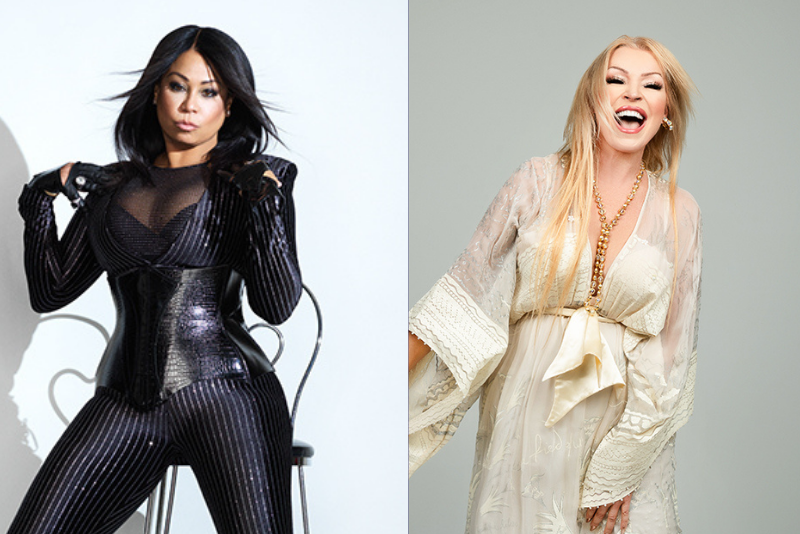
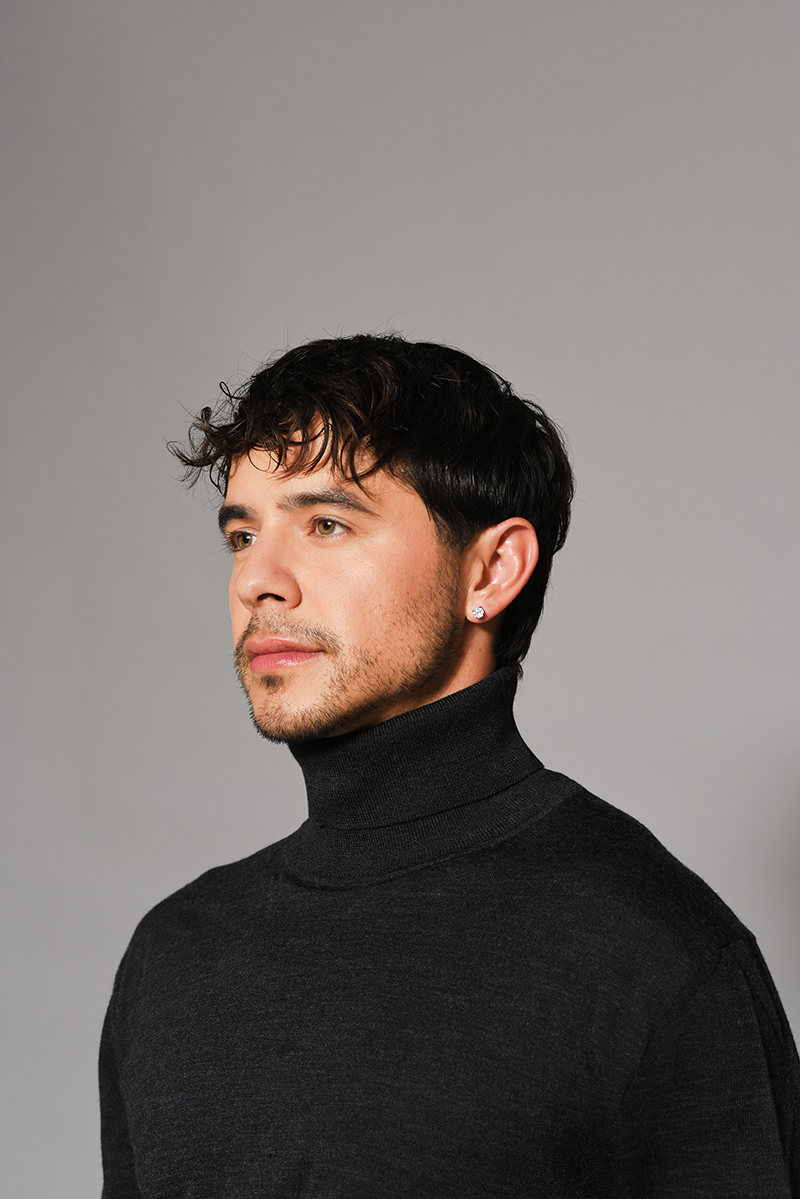
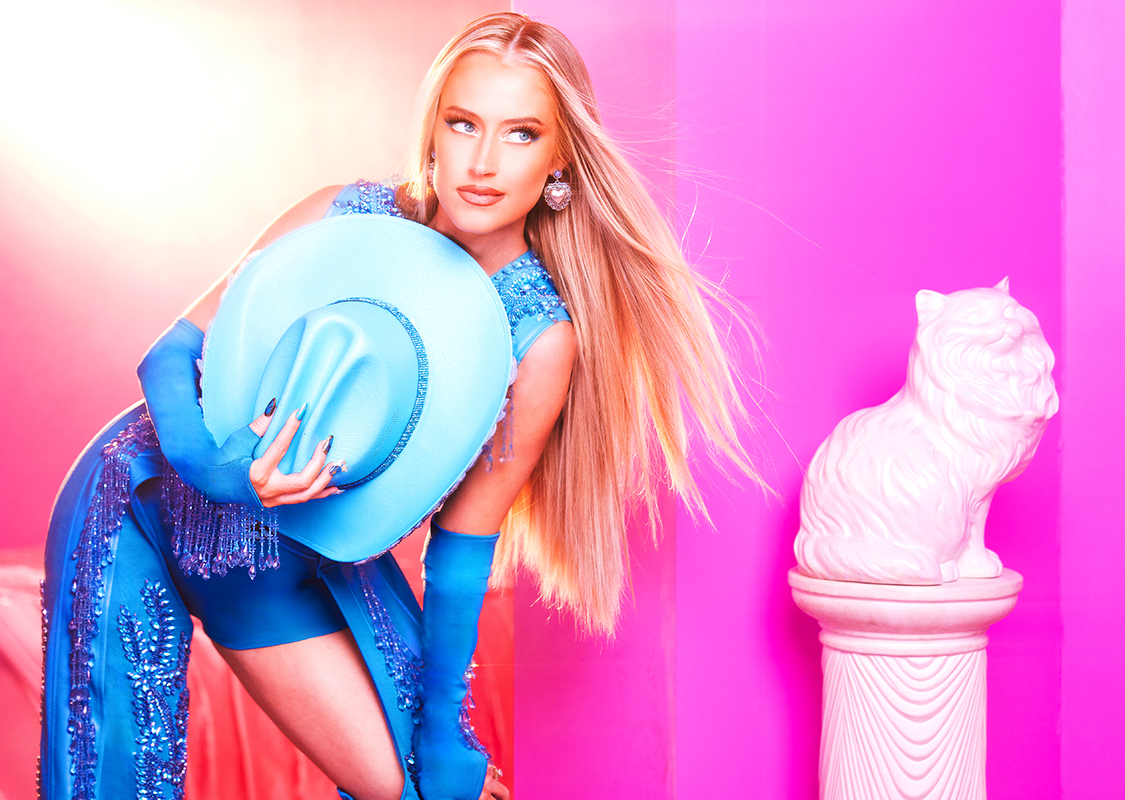













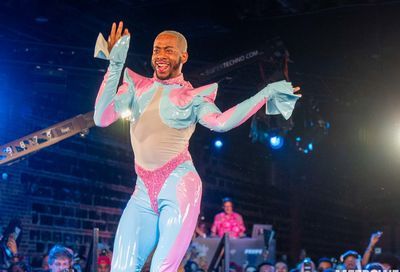
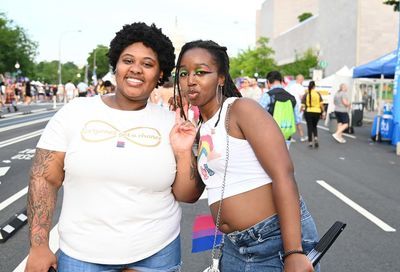
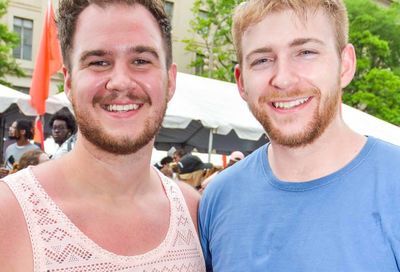
You must be logged in to post a comment.